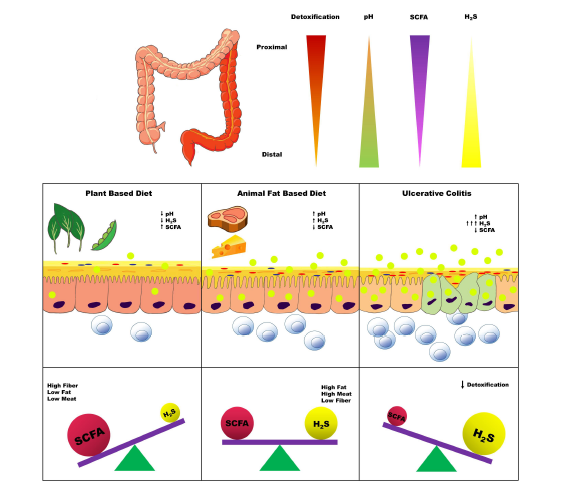The biogeography of inflammation in ulcerative colitis (UC) suggests a proximal to distal concentration gradient of a toxin. Hydrogen sulfide (H2S) has long been considered one such toxin candidate, and dietary sulfur along with the abundance of sulfate reducing bacteria (SRB) were considered the primary determinants of H2S production and clinical course of UC. The metabolic milieu in the lumen of the colon, however, is the result of a multitude of factors beyond dietary sulfur intake and SRB abundance. Here we present an updated formulation of the H2S toxin hypothesis for UC pathogenesis, which strives to incorporate the interdependency of diet composition and the metabolic activity of the entire colon microbial community. Specifically, we suggest that the increasing severity of inflammation along the proximal-to-distal axis in UC is due to dilution of beneficial factors, concentration of toxic factors, and changing detoxification capacity of the host, all of which are intimately linked to the nutrient flow from the diet.

